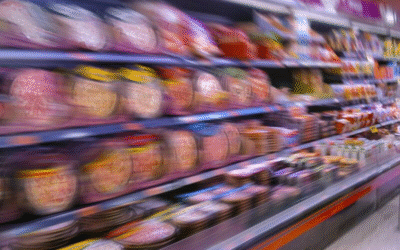By Kristen Sindelar. Republished from Midwest Messenger
Cornfed beef is considered “alpha” in taste and marbling quality, but lack of omega-3 fatty acids, known as the “good fat” has prevented this important source of protein from outpacing its seafood-oriented counterparts in terms of heart health.
The beef industry has an exceptional challenge in overcoming a stereotype about saturated fat content in beef after the Department of Health and Human Services recommended to reduce red meat consumption in its recently updated Dietary Guidelines for Americans.
A company out of Kansas could help producers change the fat profile of beef to include more omega-3 fatty acids by simply including a feed additive in cattle rations.

“We can make you a double-cheeseburger with more omega-3s than a piece of salmon,” said Bernie Hansen, chairman of BetterFedFoods in Wamego, Kansas.
As the company name suggests, BetterFedFoods is on a mission to provide quality foods for human consumption by feeding animals better. Since 2011, they have been researching and developing greatOplus, an animal feed supplement that could boost the amount of desirable omega-3 polyunsaturated fats in meat.
The product is an extruded blend of flaxseed and microalgae, both naturally high in essential fatty acids. BetterFedFoods produces a strain of microalgae called Nannochloropsis oculate, which contains two different omega-3 fatty acids to “significantly curb inflammation and promote other bodily functions in animals,” as stated on the company website.
The inclusion of microalgae sets greatOplus apart from similar omega-3 enhancement products available on the market.
“The ‘plus’ stands for the algae that we grow and use in the product. Algae contains the longer-chain essential fatty acids,” explained Hansen.
Modern commercial cattle diets create an imbalance of omega-6—the inflammatory fatty acids—and omega-3—the healing essential fatty acids. Hansen said corn causes this.
“We all love to eat cornfed beef, but when you feed a high corn diet, you drive that omega 6:3 ratio up,” Hansen said.
Corn is not the only contributor to a high omega-6 diet, according to Kansas State University (KSU) beef nutritionist Dr. Jim Drouillard.
“Most oils consumed by humans and animals in North America are in the form of plants that contain predominantly omega-6 fatty acids,” said Drouillard.
Drouillard has been involved with research surrounding supplementation of omega-3 fatty acids for almost 28 years. He said that the ideal ratio in diets is less than 4:1, but typically the diets fed to livestock have ratios as high as 20:1 or 30:1.
“The body needs a balance, but because we primarily feed corn as an energy source, it gets way distorted. Cattle are getting very little omega-3 but quite a bit of omega-6,” Drouillard said.
The problem has compounded as cattle are being fed longer and to a higher market weight. Hansen called it a “collision course” of high omega 6:3 ratio.
Hansen also mentioned an issue that he said is not talked about in the beef industry: producers are experiencing financial burden due to an increase of late-term mortality in feeder cattle, likely caused by heart attack or heat stress.
“There is a larger percentage of deaths that occur closer to slaughter, two to three weeks before harvest. It used to be 1.5% but producers now say it could easily be 2.5%,” said Hansen.









0 Comments